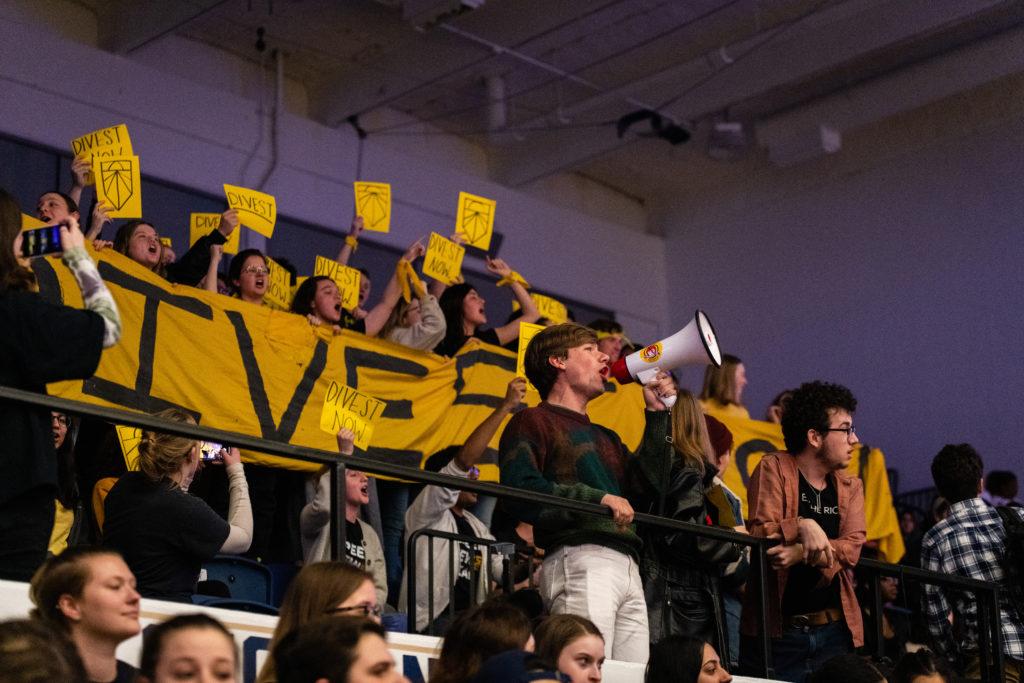Despite the COVID-19 pandemic, you’ll be happy to know that student advocacy is alive and well.
Students have taken advantage of social media and letter-writing campaigns to lobby for issues that have picked up steam over the past couple of academic years, including police reform and fossil fuel divestment. Here’s a rundown of issues students have pushed officials to change that you can get involved with as a new student.
Resisting employee layoffs
Students and faculty have pushed back on dozens of layoffs that have taken place this summer to offset GW’s $220 million budget gap. Administrators said layoffs were “unavoidable” earlier this summer, but they’ve declined to say how many layoffs have occurred.
The Student Association launched a letter-writing campaign earlier this month for alumni, faculty, staff and students to stop the layoffs, and more than 100 students signed a petition asking for “an end to unnecessary firings of staff.”
Pushing for fossil fuel divestment
Students have been calling on officials to cut ties with the fossil fuel industry for years. But that movement dramatically ramped up in February, when University President Thomas LeBlanc revealed GW’s fossil fuel holdings for the first time, sparking a week’s worth of protests.
Since then, the Board of Trustees’ Environmental, Social and Governance Responsibility Task Force – which formed days after the protests – voted in June to completely divest from fossil fuel companies. Officials said the task force, which includes students, will continue meeting to review the University’s social and governance responsibility.
Reforming the GW Police Department
As the Black Lives Matter movement gained traction following the death of George Floyd and other Black citizens, the Black Student Union published a letter containing a number of demands for GWPD to protect Black lives at the University, like decreasing its dependence on Metropolitan Police Department officers and involving Black University leaders in diversity trainings.
GWPD Chief James Tate said in June that he’s not currently satisfied with officer de-escalation training, and he’s built a training unit for officers to learn de-escalation techniques and hold implicit bias trainings in the department. Officers are also now required to carry body-worn cameras.
Nixing campus building names, Colonials moniker
Talk of renaming the Colonials moniker and several campus buildings is far from new. Last month, five student organizations picked up those efforts and launched the Reconsider the Names campaign, which urges GW to ditch the moniker and the names of six campus buildings named after historical GW figures who favored segregation and other racist policies.
Soon after the campaign took off, officials established two committees headed by professors to examine the Colonials and the Marvin Center building name. The committees will use a Board-approved framework to consider renaming buildings and the Colonials moniker, weighing the extent of the figure’s connection to GW and the “depth and breadth” of racial offenses.
Students are also now able to directly petition to change the name of any GW building, memorial or institution to the University president’s office. Any petition that reaches more than 500 signatures will be sent for LeBlanc to review.
Altering the grading scale
As the country struggles to maintain the COVID-19 pandemic, the SA is pushing for the continuation of the Pass/No Pass grading scale that GW adopted last spring. The SA conducted a survey last month in which 93 percent of the respondents said the policy should be implemented again this semester.
The SA also passed a resolution last month urging officials to extend the policy to the fall, citing academic and personal challenges students may face while navigating school from home. Officials have not announced if the Pass/No Pass grading option will be available this fall.







